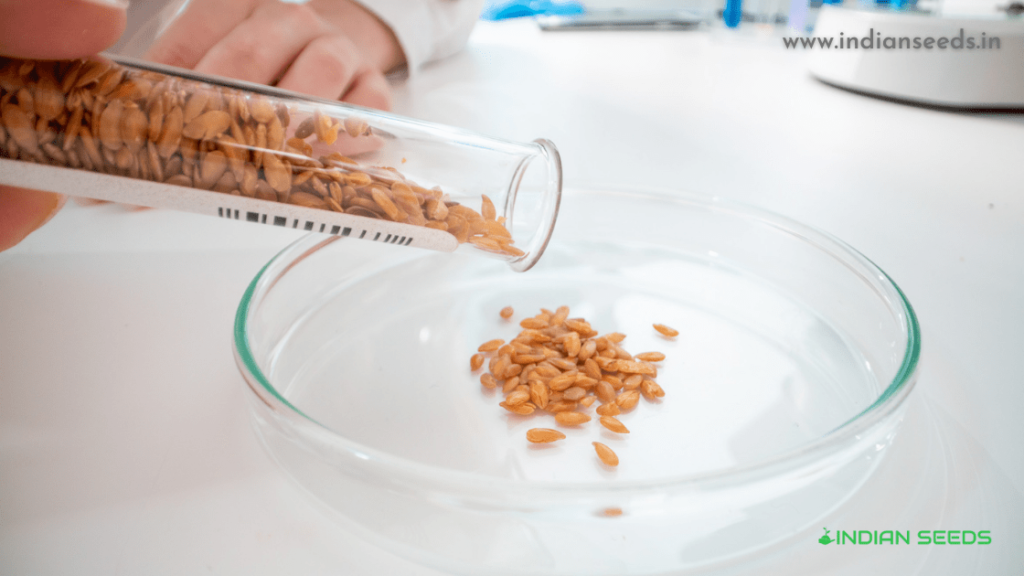What is Seeds?
Seed, in its broadest sense, is a substance used for planting or regeneration. Seed, on the other hand, is a fertilised matured ovule coupled with a seed coat that is used for sowing or planting purposes in agricultural, sericulture, silviculture, and horticulture plants.
“A real seed is a fertilised matured ovule, consisting of an embryonic plant, a store of food, and a protective seed coat, the store of food consists of cotyledons and endosperm,” according to the definition.
Define Seeds?
Seed, on the other hand, can be a sexually produced developed ovule containing an intact embryo, endosperm, and/or cotyledon with protective covering from a seed technology standpoint (seed coat). It also includes healthy seedlings, tubers, bulbs, rhizomes, roots, cuttings, setts, slips, and all sorts of grafts, as well as vegetatively propagating materials utilised for production.
Thus, seed is the most important and necessary input for crop production, and sowing quality seed is one of the most effective strategies to boost output without increasing the amount of area already under cultivation.

Attributes which define Seeds Quality
1. Genetic Purity
Seeds should be genetically pure. For example, Breeder seeds are 100 % pure, Foundation seeds are 99.5% pure, Certified seeds varieties are 98% pure, Certified hybrid seeds are 95% pure and so on.
2. Phusical Purity
Physical as the name suggests the seeds should be in good shape, free from weeds, diseases, optimum moisture content and so on.
Let us now discuss some attributes which affect Physical Purity.
2.1. Free from other crops and seeds
Inseparable crop seeds are cultivated crops found in seed fields whose seeds are so similar to crop seed that it is difficult to separate them economically by mechanical means, resulting in physical admixtures with crop seeds only when these crops mature around the same time as the seed crop. Oats and wheat seeds, for example, are found in barley.
2.2. Free from Weed Seeds
These are weed seeds that are detrimental in one or more of the following ways: the shape and size of weed seeds are similar to the crop seeds, making mechanical separation difficult.
For example, Paddy may contain wild paddy (Oryza sativa var. fatua), Cucurbits may conytain Wild cucurbits spp, etc
2.3. Free from Diseases
There are specified seeds diseases that may cause contamination of entire seeds lot. Hence the seeds should be certified free from such diseases.
For example, loose smut of wheat (Ustilago tritici), Grain smut of pearl millet (Tolyposporium penicillariae), Early blight of tomato (Alternaria solani), etc.
2.4. High Germination and Physical Strength
2.5. Excellent Moisture Content
For example, Cereals should contain 10-12 % moisture, Pulses: 7-9%, Oilseeds:6-7%, Vegetable Seeds 5-6%, etc.
The Importance of Seeds Quality
The significance of high-quality seeds has been understood since the dawn of time. “Subeejam Sukshetre Jayate Sampadyathe,” states the ancient book Manu Smriti, “good seed in rich soil yields plenty.” Seed quality has long been revered as a precious commodity that contributes to the advancement of agriculture and agrarian cultures.
Although the value of seed has been recognised since ancient times, the need for organised seed production was not recognised until the early twentieth century, when the Royal Commission on Agriculture (1925) advised the spread of improved varieties and seed distribution.

Why we should focus on Quality seeds production
Seed is an important element in crop production; it is the cheapest and most important input in crop production.
The success of a crop is largely determined by the seed materials used during sowing. The response of other crop inputs is influenced by the seed material used.
The amount of seed necessary to raise a crop is extremely tiny, and the cost of seed is very low when compared to other inputs. This highlights the importance of expanding the sites where the high-quality seed is produced.
It is expected that high-quality seeds in enhanced types can increase production by 20% to 25%.
Importance of Improved Seeds varities
- Improved seeds are carriers of new technology.
- They are a basic instrument for ensuring food security and the primary method for increasing crop yields in less-than-ideal growing conditions.
- They are a medium for speedy agricultural recovery following natural calamities.
Advantages of using Quality Seeds in farming
- They do not have any genetic mutations (true to type).
- Because the crop’s genetic potentiality can be completely realised, a good grade seed gives a high return per unit area.
- Weed and other crop seeds are less likely to infest the area.
- Disease and pest problems are reduced.
- Seed/seedling rate minimization, i.e. seedling emergence that is quick and uniform.
- Fruits from quality seeds are healthy, pest-free, and disease-free.
- They can be used to adapt to the location’s harsh climatic conditions and cropping system.
- The administered fertilisers and nutrients have a positive effect on the quality seed.
- Plant population and maturity are consistent.
- Crops produced with high-quality seeds have an attractive appearance.
- A variety’s life is extended with a good seed.
- Produce is of high value and marketability.


















